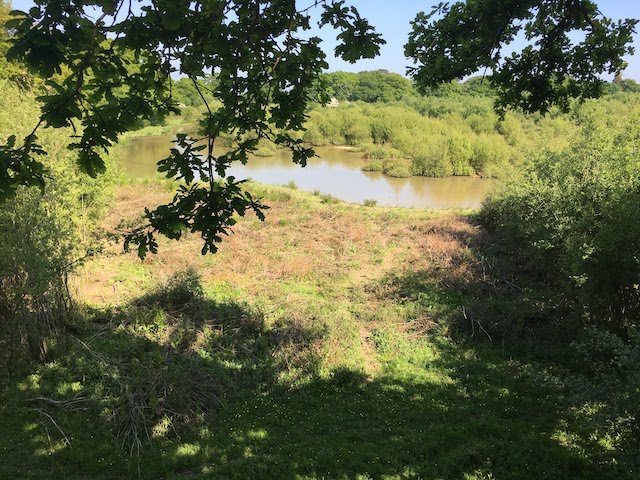Queen Mary leads pioneering research into rewilding lowlands
Academics from Queen Mary University of London are developing a new research partnership with a pioneering lowland rewilding site in southern England.

Led by members of the School of Geography’s Water and Environmental Management MSc teaching team, the collaboration with Knepp Wildland provides opportunities for fieldwork and dissertation projects. It explores key concepts and issues addressed by the programme including natural flood management, environmental restoration and nature-based climate solutions.
Dr Gemma Harvey and Dr Alex Henshaw have been awarded £10,000 from the Queen Mary Humanities and Social Sciences Collaboration Fund to support their project, A bird’s-eye view of the Wildland: Quantifying landscape change at a pioneering rewilding site.
Knepp, a 3,500 acre estate in West Sussex, was previously an intensive arable and dairy farm, but since 2001 the land has been devoted to rewilding, with grazing animals used to drive habitat creation. The vision is to establish a functioning ecosystem where nature is given as much freedom as possible. The project has been cited as an outstanding example of landscape restoration in the UK Government’s 25 Year Environment Plan.
The unique nature of Knepp provides vast opportunities for environmental research but the scale of the project generates substantial research design challenges. Specifically, future research on the environmental effects of rewilding, including opportunities for natural flood management, requires baseline data on vegetation structure and dynamics which are currently lacking.
The project will provide open access geospatial data on vegetation and dynamics since rewilding and explore 3D vegetation structure. The team will develop educational materials for public exhibition at Knepp and online, in addition to publications in scientific journals. The findings will be used to underpin future research on the potential for landscape rewilding to alter hydrological processes and contribute to natural flood management.